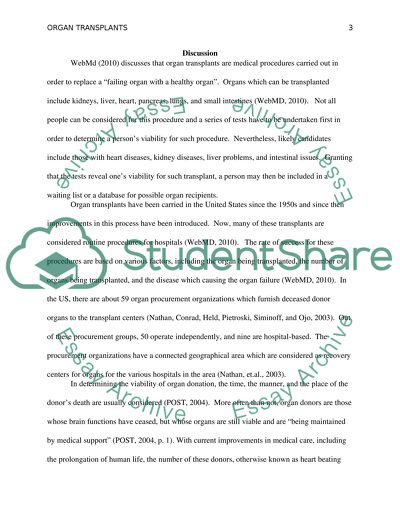Cite this document
(“Organ Transplants Research Paper Example | Topics and Well Written Essays - 1500 words”, n.d.)
Organ Transplants Research Paper Example | Topics and Well Written Essays - 1500 words. Retrieved from https://studentshare.org/english/1437546-organ-transplants
Organ Transplants Research Paper Example | Topics and Well Written Essays - 1500 words. Retrieved from https://studentshare.org/english/1437546-organ-transplants
(Organ Transplants Research Paper Example | Topics and Well Written Essays - 1500 Words)
Organ Transplants Research Paper Example | Topics and Well Written Essays - 1500 Words. https://studentshare.org/english/1437546-organ-transplants.
Organ Transplants Research Paper Example | Topics and Well Written Essays - 1500 Words. https://studentshare.org/english/1437546-organ-transplants.
“Organ Transplants Research Paper Example | Topics and Well Written Essays - 1500 Words”, n.d. https://studentshare.org/english/1437546-organ-transplants.


